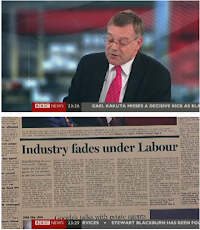Whitehall winces as Osborne calls time
By George Parker, Alex Barker and Chris Giles
Published: July 16 2010 22:36 | Last updated: July 16 2010 22:36
George Osborne, chancellor, on Friday night began work on the biggest round of Whitehall cuts since the second world war, after cabinet ministers sent in their plans to curb spending by anything up to 40 per cent.
The Royal Air Force’s next generation of fast jets, the legal aid budget, skills training, the arts, prisons and business support are among the areas expected to take the biggest hit, along with more than 100,000 public sector jobs.
Other politically unpalatable options put forward to the Treasury include cutting the armed forces by tens of thousands, halting all investment in renewable technologies and scrapping plans to raise the school leaving age to 18.
Treasury officials spent the day ringing around Whitehall departments insisting they met the “close of play” deadline for submitting their proposed budgets. Final spending decisions for the rest of the parliament will be announced on October 20.
Around Whitehall there were howls of protest that the Treasury was making unreasonable requests, but Mr Osborne was adamant that most “unprotected” departments should outline cuts of either 25 per cent or 40 per cent. Only health and overseas aid are fully protected from cuts, while education and defence ministers were told to draw up smaller – but still painful – reductions of either 10 per cent or 20 per cent.
 Mr Osborne is braced for a series of “shroud waving” stories emerging from departments claiming they are being asked to deliver the impossible or are being forced to break political promises. The Financial Times revealed concerns in the military about having to bear the cost of renewing the Trident nuclear deterrent, while transport officials said they might have to scale back the promise of free bus passes to older people. “They are classic tactics,” said one Treasury insider. “We will get a lot more of this in the next couple of months.” There is a view among Whitehall officials that Mr Osborne’s department is showing rather too much relish with the knife.
Mr Osborne is braced for a series of “shroud waving” stories emerging from departments claiming they are being asked to deliver the impossible or are being forced to break political promises. The Financial Times revealed concerns in the military about having to bear the cost of renewing the Trident nuclear deterrent, while transport officials said they might have to scale back the promise of free bus passes to older people. “They are classic tactics,” said one Treasury insider. “We will get a lot more of this in the next couple of months.” There is a view among Whitehall officials that Mr Osborne’s department is showing rather too much relish with the knife.Some officials from spending departments are becoming increasingly frustrated by a “gruesome and unreal” process, driven by a seemingly merciless Treasury. They complain that there has been very little discussion of trade-offs and implications of cuts. “They just say show us the numbers,” said one Whitehall insider.
Mr Osborne and Danny Alexander, Treasury chief secretary, told ministers to produce two scenarios for cuts – one tough, one excruciating – to provide them with a “menu” of alternatives. The “star chamber” of senior ministers will make final political judgments. “If they do not come up with things that are sensible we will ask them to do it again,” said the Treasury insider. “We will identify around the cabinet table those who have done their homework and those people who have not.”
The Treasury reckons the scale of the cuts will force ministers to make radical choices. “They will have to stop doing things altogether or get someone else to do them,” said one official. “Just spreading the jam more thinly across all spending areas won’t work this time.”
Ken Clarke, justice secretary, is seen in the Treasury as the poster boy of the cuts process. His plans to stop sending so many people to prison and to scale back legal aid are viewed as models of original thinking.
The business department is struggling with the scale of the task ahead. With more than half its budget allocated to higher education – the funding arrangements for which cannot be changed until Lord Browne reports the findings of his independent review in the autumn – it leaves Vince Cable, business secretary, with little room for manoeuvre.
Mr Cable hopes the growth focus of his department might spare it the worst of the cuts, a view shared by Philip Hammond, transport secretary, who hopes the £16bn Crossrail project in London could do well in a cost-benefit analysis of capital projects.
Additional reporting by Robert Wright and Kiran Stacey
£1bn Train to Gain scheme faces axe in hunt for apprenticeship funding
Ministers are drawing up plans to dismantle a £1bn flagship scheme that gives subsidies to companies to provide adult education to their workforces, write Jim Pickard and Kiran Stacey.
John Hayes, minister for further education, is believed to have concluded that the Train to Gain scheme should be dismembered, with much of the funding switched to new apprentice schemes.
Last month, ministers cut Train to Gain by £150m to fund 50,000 extra apprenticeships, with another £50m sliced off to help fill a gap in the college rebuilding programme. Now Mr Hayes is keen to go further and reduce the scheme to a husk of its original form under Labour, transferring hundreds of millions of pounds to other apprentice schemes.
The decision is likely to be made after the Whitehall spending round in October, in which the business department is likely to be hit disproportionately hard.
An element of the Train to Gain programme is likely to be maintained, but only in a slimmed-down form. The government has also signalled that it is cutting funding to larger companies for training, while increasing the proportion that goes to small business.
Tom Richmond, skills adviser at the Chartered Institute of Personnel and Development, said that 1.25m people had benefited from Train to Gain, with more than half a million receiving a qualification. He said the scheme had enjoyed a 70 per cent success rate.
But he conceded that in a time of austerity it was hard to justify a programme that gave 100 per cent subsidies to activities that private companies might do anyway. Mr Hayes recently told the FT that apprenticeships had been “bastardised” by the Labour government.
He said he wanted to reinvigorate the qualification with proposals that included more relevant syllabuses and a range of extremely high-level apprenticeships equivalent to undergraduate and postgraduate qualifications. The main concern remains, however, that places on apprenticeship schemes are limited by a shortage of companies prepared to offer them to young people.
Mr Hayes is also preparing the ground for new “learning accounts”, which are likely to give every adult eligible for government-funded training a financial credit to pay for courses.
Copyright The Financial Times Limited 2010. You may share using our article tools. Please don't cut articles from FT.com and redistribute by email or post to the web.





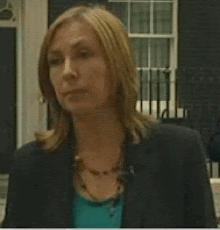
































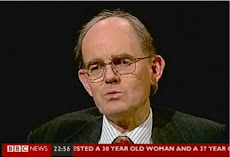


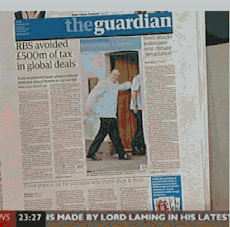






















![JOIN KHOODEELAAR! Say NO to Crossrail. [click image below to] TWITTER!](https://blogger.googleusercontent.com/img/b/R29vZ2xl/AVvXsEg0BMAXxqm9e9hs7NWzABi1ZgE6k8z3EnYTyT4PhEPN-LwHWwsMTFCws4ibYaiUj1zRawBAU8oAIB9NHhcn98hEx2e6udF2b48j9UOjELRzoNDGa2BDR7e3iBK0K4ieWkBuZA6YyOgHLU4/s230/khoodeelaarnotocrossrailhole.jpeg)








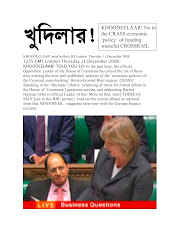



![“Dave” [!!!!] looks decidedly LESS of a Ca-Moron in THIS Times online version of the photograph..](https://blogger.googleusercontent.com/img/b/R29vZ2xl/AVvXsEiaPEWO9Ck-ZUE6NG8hlstePHRfUK8_mst1wBd6ikYiesIlSwBRhPm270y83eRdfQhu_eRnL97O_DA981-Z-h59GnkTdCB_GpM5T0dq-i0EisNdw04vnz4MooXSJBWCBS8NYmg3_3OXFqg/s230/Times.online.picture.makes.Dave.look.less.of.a.moron.jpg)













![Is Michael Martin [seen left in picture] on his way out at last?](https://blogger.googleusercontent.com/img/b/R29vZ2xl/AVvXsEh9EQJaW8oDCvLPm9fX-DaTCgp8CygIqPQSixf_CHugLh5s99XTWyocVQSo0MvFX5oTZHBTsdQsBwPUCPQOXElGHO2IVjl6sIqMo36o47wEtRw_zbsR3crgBuhCPNQN2LJGdLUh9n2E7bg/s230/michael-martin-estandard.gif)





















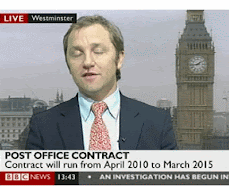




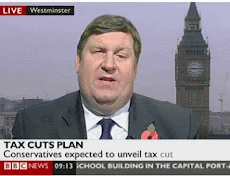








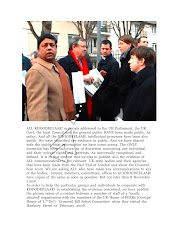






















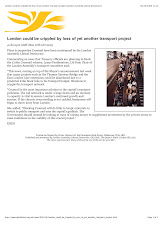

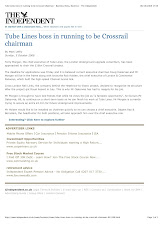






















































![KHOODEELAAR! constitutional law action against "CROSSRAIL hole' -EVIDENCE, update [8]](https://blogger.googleusercontent.com/img/b/R29vZ2xl/AVvXsEiYuHjTwCreqM1EuCt6Eb5IOtSYqvy6T60rKTHgC-FKZqrXBe-xhvc_9Gl5w8PXruF5CBEnG-QjLikJyF61n-I8ErUzVkKxzAQcF2h0m1lLJUNVwCg6iQdte08I0azTE_V1fU2Px0wK1LI/s230/Ethnicity.linked.multiple.CRASSness.for.Crossrail.gif)

![First EVER picture of KHOODEELAAR! campaigners meeting Crossrail hole-company CLRL staff. [1]](http://1.bp.blogspot.com/_pSmwp9aFK8U/SJsLfgDZf6I/AAAAAAAACXg/QpFKTwv4w2I/S230/KHOODEELAAR!+campaigners+met+Crossrail+staff.jpg)












![KHOODEELAAR! 16440 print edition [Page 2] Friday 1 Aug 2008](http://bp0.blogger.com/_pSmwp9aFK8U/SJLQiAJUEDI/AAAAAAAACRM/ZOfHcPiHV6o/S230/KHOODEELAAR!print16440Fri1Aug2008p2.gif)



















![The [Glasgow] HERALD Saturday 19 July 2008](https://blogger.googleusercontent.com/img/b/R29vZ2xl/AVvXsEjWVr5bEfeXq4TVFDNVkFAm0bnCQQ4dabcnxe-hOPvd5vtlrrCWg5ZqOKH7gnkUmxlb2Tyyb-qXaHGY1lBZv-L8zvVfNpCq6KHclGlQTQyzLeWTog2XBm3evm0N5Jt3AUniCtDUiN9dYg4/s230/15046744.jpg)










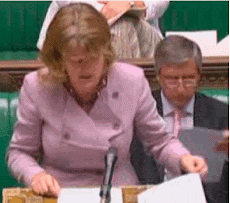




























!["Abandon Crossrail project £16 billion" SUNDAY PEOPLE [March 2009]](http://3.bp.blogspot.com/_pSmwp9aFK8U/S_Avs0XxlfI/AAAAAAAAEd8/mDbXCiiYYK4/S230/Scrap+Crossrail++to+avoid++extra+DEBT+burden+on+every+UK+household,+says+SUNDAY+PEOPLE.jpeg)






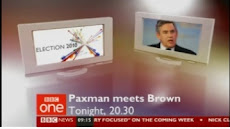
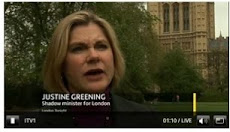











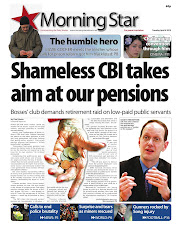

![Haringey [London] Council scandal, court action revives questions about Christine Gilbert again!](http://1.bp.blogspot.com/_pSmwp9aFK8U/S7ZXO54lv0I/AAAAAAAAEZA/cI5uX0bWtEg/S230/Christine+Gilbert-1.jpeg)







![BBC is still publishing fakery. This item [click here] the latest](http://1.bp.blogspot.com/_pSmwp9aFK8U/S3hpr8nLzQI/AAAAAAAAEXg/P33HrYrvz7k/S230/AADHIKARonline+reporting+the+BBC+wheeling+out+Meghnad+Desai+to+pose+on+as+an+expert+on+economics..+Sunday+14February2010.jpg)











